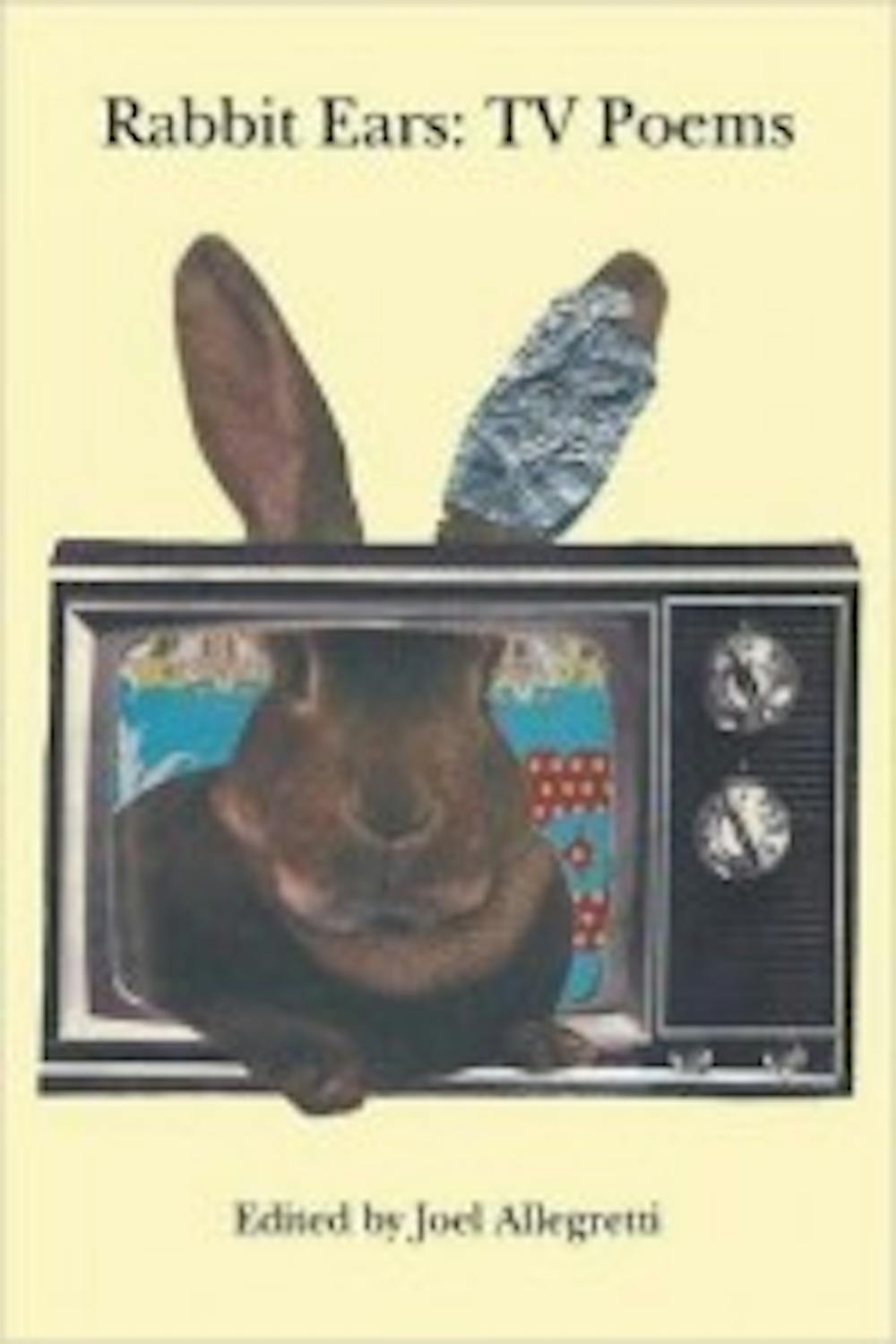On Thursday, April 7, 2016, students, staff and the Kean community gathered in the Center for Academic Success (CAS) for a poetry reading of Rabbit Ears: TV Poems. Rabbit Ears is a book of poetry featuring 130 poets covering the many decades of TV; it surrounds many great television series, characters and storylines. Ten poets read both their own and others’ stories.
Suzanna Rich, Professor in Kean University's School of English Studies, introduced the event but also was regarded as one of the authors within the book. She read a personal poem called “The Thing: My Crazy Family.” She began by divulging her childhood experiences and how television has played a role in her life.
She states, “I was one of those turnkey kids so I usually came home to no one…I usually hook onto shows that help me mythologize my life.” Her poem was interactive featuring the Addams family theme song where audience members sang along and clapped in unison, “I am as a thing as a thing.”
An anthology is typically a published collection of poems or other pieces of writing. Over the years, anthologies have been written about music, movies and countless other themes. They provide a range of perspectives centered around one general topic. This is valuable because it recognizes commonalities while adding elements of uniqueness and celebrating differences.
However, there had been almost none written on a critical area of daily interaction for most people, television.
When describing what inspired an anthology about TV, Joel Allegretti, editor ofRabbit Ears, states, “There were no anthologies about television but plenty about movies and music.”
Whether it be news, shows, movies or politics, television has always had tremendous influence in society. In many ways, both consciously and subconsciously, it shapes what people think, feel and know.
When describing how important he felt television is, Allegretti stated, “Rabbit Ears was born because there was nothing about a medium that has influenced our life, taste, politics, etc…”
After its original induction, it became such an enormous source of information and entertainment. The nature of the world changed as people now had to consider the weight of representation, news, knowledge and everything in between.
Josh Humphrey started the reading off with a poem entitled “Bioluminescence.”
He stated, “TV when I was a kid was like a part of the family, all of my memories seem to have it.”
He confesses the role television played in his household and how it created, impacted or maintained relationships.
“I wrote a poem called “Bioluminescence,” which is the light made from living things, and I thought that was a fitting definition for TV and my brother. So this is for my brother, Jeff, and our other brother, television.”
One of two women readers, Diane Lockwood read a simple poem about the remote.
She stated, “Often a source of contention in houses where there’s a married couple, I speak from experience.” Interestingly, she doesn’t reference one show or another, but takes the television as an item and frames a story around it.
Most of the poets that presented during the reading are published authors with their own books. The amazing thing about poetry as a medium of expression is how so many people with vastly different contexts can relate on an artistic level.
Allegretti stated, “TV spans generation, so doesRabbit Ears. The contributors range in age from 21 to 93.” Poetry provides a way to share opinions, experiences and feelings with poignant honesty. In an extraordinary way, it illustrates the beauty and creativity of human language.
John Trause read the only poem of the night that was not in English. Featuring a cherished childhood memory, he shares his feelings toward television at an early age. David Messineo, another poet, aptly explains this.
He states, “Poetry allows us to look at history and try to zoom in on that moment.” In a way, it allows reflection on individual moments in time, be they beautiful, heartbreaking or mundane.
George Witty ended the reading with two poems entitled “The Day Lassie Died” and “We Were Watching Wheel of Fortune When the War Came On.” For a man relatively removed from television, his two poems were an exceptional ending to the reading.
He stated, “Honestly, I haven’t watched much TV for the last 10 years...” Specifically the poem featuring wheel of fortune was fascinating because it put into perspective the social context of the time and how people experienced it.
Poetry can be both entertaining and thought-provoking. It allows people to find out what’s really on a person’s mind and express his or her feelings constructively while also connecting with one another in this realm of artistic expression.
The reading was followed by an extensive Q&A with the poems. The 10 poets also followed the reading a week later, on Monday, April 18, 2016, 7 p.m. at Oradell Public Library.



